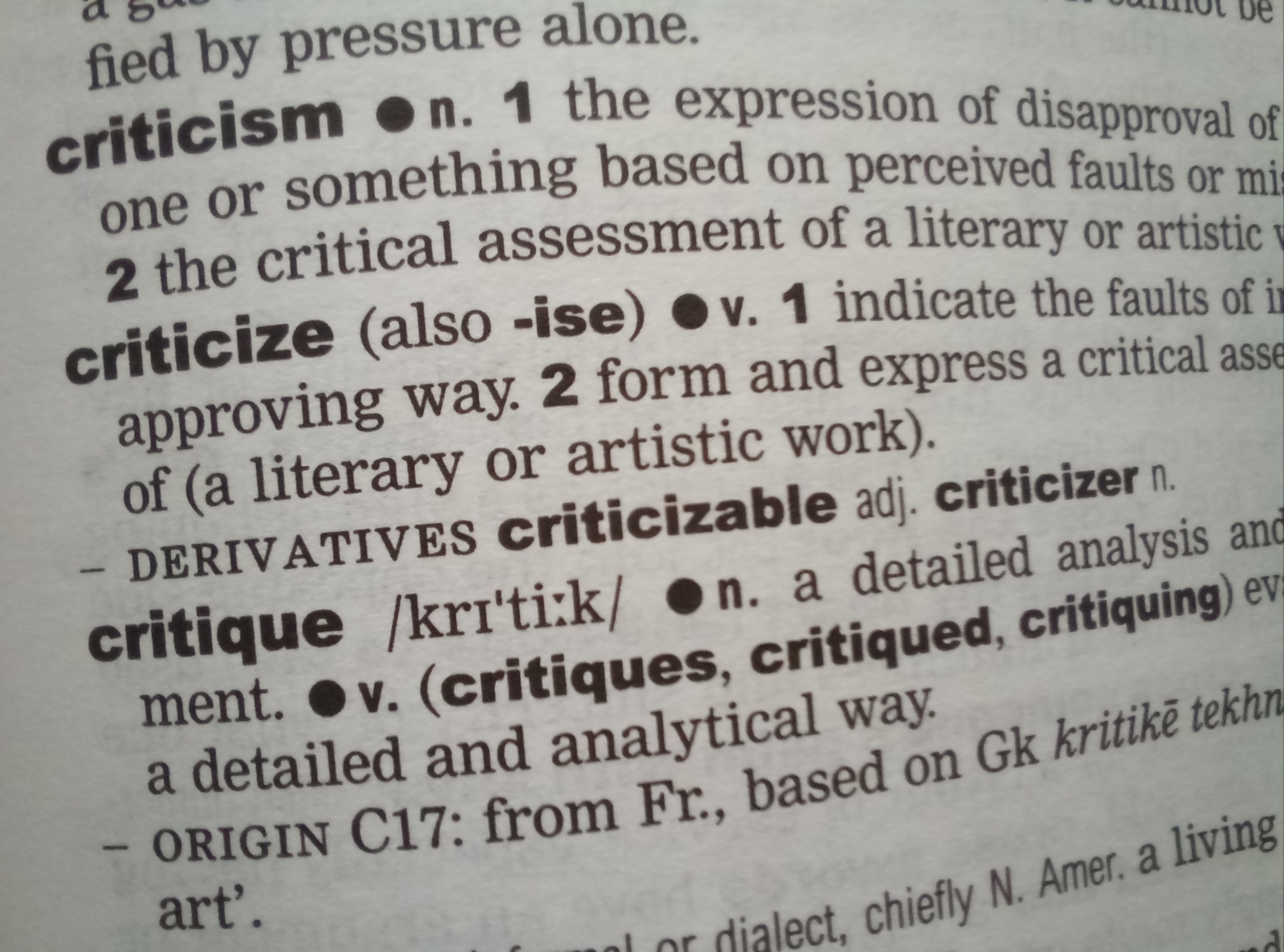Positively critical
Ever noticed how an idea will bounce around in your head – and before you know it, whatever that thought is keeps coming at you from various angles.
It’s like looking for a new car. Suddenly you’ll notice that particular make and model everywhere you go. Or a fashion colour that you’ve not paid much attention to. The minute you decide you like it – yup! Everywhere! A sweater here, a pair of curtains there, a scatter cushion in a shop window or a throw in an advertising catalogue.
Similar thing happened the other day. I was thinking about the topic of criticism since I had just waded through about 600 wines for the 2021 issue of the Platter Guide. Appending scores to wines is a very subjective thing – but how does one produce valid criticism? And more to the point how does one present negative criticism in a constructive manner.
That thought was amplified by something British Master of Wine Tim Atkin wrote in the introduction to his annual report on South Africa. “That’s one of the many reasons I love writing about South Africa, the focus of my latest report. Spotting talent and backing it to succeed, putting a bit of my reputation on the line in the process, is a vital part of my job as a critic. I’ll never be able to write like Kenneth Tynan, but I can be inspired by his example.” *
No-one wants to be offensive or abrasive. Well, almost no-one ... unless your name is Piers Morgan or you’re a total contrarian who wants to invite shotgun blasts of ire and vitriol. (And there are a few contrarian souls out there!)
But seriously, how do you tell someone that the product they have slaved over for two to three years is not as great as they think it is? That, in fact, in comparison to a host of other products it’s downright poor!
As a journalist and a writer, I know that criticism is hard – both to give and to receive. On the receiving end, we’re told to take it on the chin. View it as a learning opportunity or chance to grow. Also, not to be precious and just get over it.
My life before wine was as a newspaper sub-editor where my job was to wield a scalpel on lovingly crafted words in order to shoe horn an essay into a paragraph. And as a magazine editor of now 20 years standing, I still do the same thing. It’s always easiest when being dispassionate.
News journalism is never about the individual. It’s important to remember that the journalist is a conduit for information – not part of the story. And in that regard, the story must be stronger and better for the editing or criticism process. Simply beating writing into submission can be done easily. But training someone to be able to cast a critical eye over their own work in order that they improve their writing, omitting errors and being better should be the end goal.
It’s like the “give a man a fish versus teaching a man to fish” thing. The point being made is that it shouldn’t be personal. The goal is to make whatever the product is – be it a report or a bottle of wine – better.
Many South Africans are brought up by being conditioned to not say anything at all if you can’t say something nice. But is being “nice” really being honest? Is XYZ winemaker going to strive to improve his wine if people only ever say nice” things about it? No-one is immune to criticism. It stings – but it forces one to reassess, to look at an issue or a wine from a different perspective, to do more research – and then to experiment and improve.
South Africa learned the hard way when being readmitted to the international fold post-1994 that our wines were not good enough. As a wine producing nation we copped a lot of criticism. Many egos were bruised and battered. But it was also when winemaker Andre van Rensburg famously said if you can’t take the criticism, go and plant vegetables!
Fortunately, SA’s winemakers knuckled down, tasted international wines, educated themselves and within the space of two decades have those self-same critics stating that the country’s wines are nowadays among the most exciting being made globally.
The slew of awards at the International Wine & Spirit Competition, the International Wine Challenge, Decanter World Wine Awards, Mundus Vini, Concours Mondial, Chardonnay du Monde and others announced in the past few weeks are vindication of winemakers’ efforts.
That’s the power of positive criticism.
*Kenneth Tynan was a theatre critic, widely acknowledged as the GOAT (Greatest of All Time). He penned gems such as this: “A critic is a man who knows the way but can't drive the car.”

- Blog by Fiona McDonald